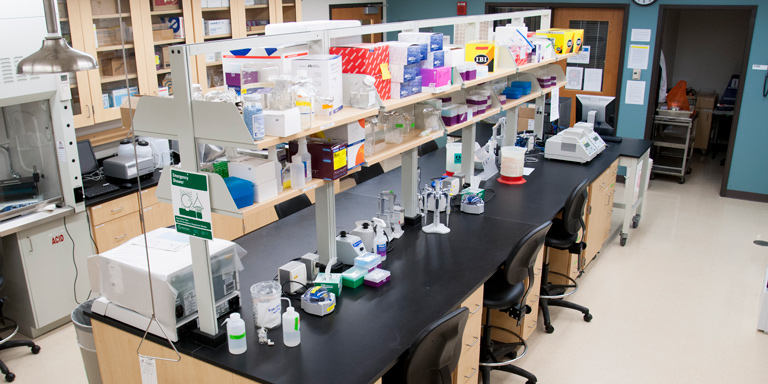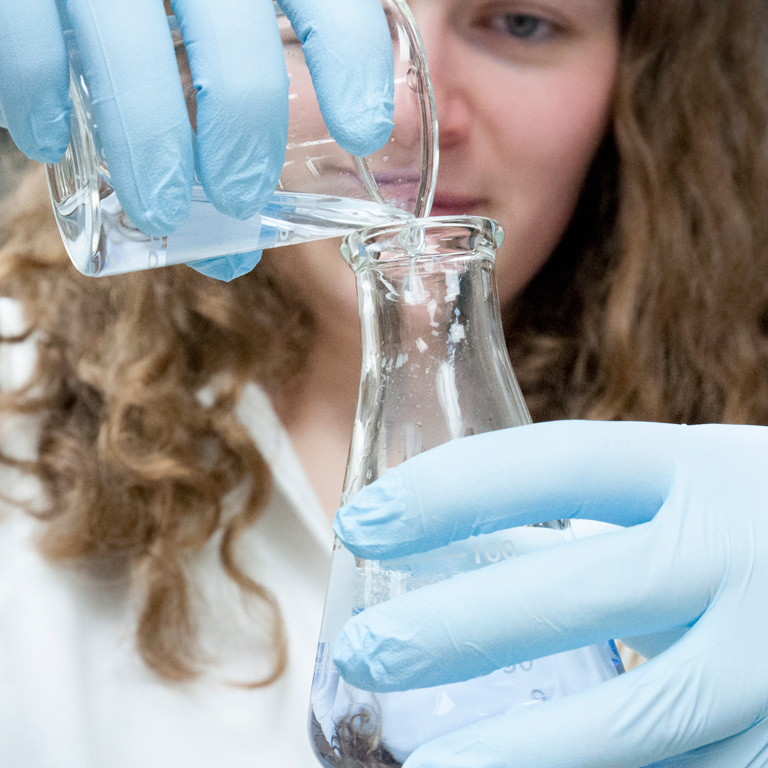Animal behavior is the scientific study of everything animals do, whether the animals are single-celled organisms, insects, birds, mammals, fish, or humans. The field of animal behavior is concerned with understanding the causes, functions, development, and evolution of behavior.
Undergraduate
In Animal Behavior, you have options
There are several paths you can take as an undergraduate when exploring the field of animal behavior at Indiana University.
Curiosity about animals + the life sciences
The Bachelor of Science (B.S.) degree in Animal Behavior attracts students from a variety of backgrounds who share a desire to work with animals, approaching the study of their behavior from a scientific perspective.
Students pursuing this degree are typically interested in the relationships among various disciplines, especially anthropology, biology, cognitive science, neuroscience, and psychology. They are curious about how genes, physiology, and the environment influence behavior, and might wish to explore comparative studies of the behavior of human and non-human animals. CISAB students often have a passion for conservation and environmental issues.
The major gives you in-depth training in the interdisciplinary study of behavior and its relation to evolution, ecology, and physiology. You come away with a strong basic background in the life sciences, as well as specific training in the science of animal behavior.
Learn more in our FAQ sectionLectures, labs, + supervised research
Your course of study includes a combination of traditional lecture and lab courses. We also encourage individual supervised research in faculty laboratories and/or internship experiences in animal behavior.
The curriculum involves courses in biology, psychology, and anthropology. It is designed with the goal of giving you an understanding of the primary environmental, social, evolutionary and physiological principles that form the basis of the scientific study of animal behavior.
You also gain an understanding of experimental design and the methods required to propose, test, analyze and interpret scientific data relevant to animal behavior.
You acquire experience in the key research techniques used in animal behavior lab and field research, learning how to apply the core principles of the discipline to specific questions within lab, field, or applied animal behavior settings.
You gain the ability to communicate scientific research relevant to animal behavior.
We are part of the College of Arts + Sciences
A degree in Animal Behavior provides students with the foundational skills of a liberal arts education, which are prized by employers and vital to a 21st-century career.
Visit the College's websitePreparation for a meaningful career
Your degree will provide you with a diverse set of skills and knowledge, preparing you for a variety of work environments. We offer and encourage participation in internships.
Learn more





 The College of Arts
The College of Arts